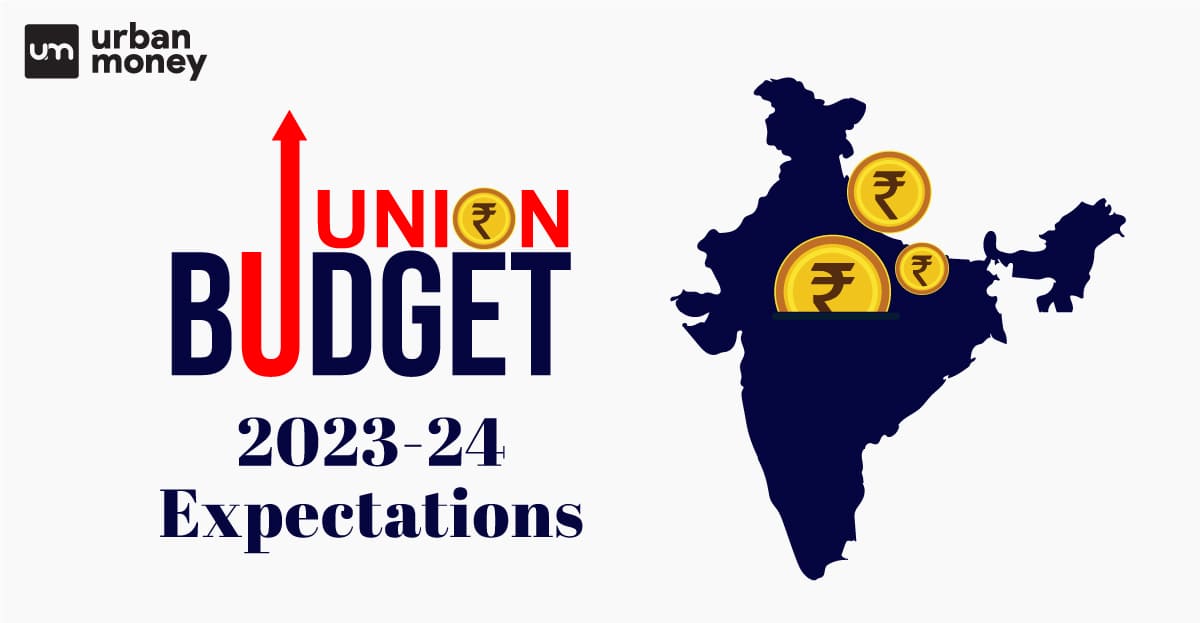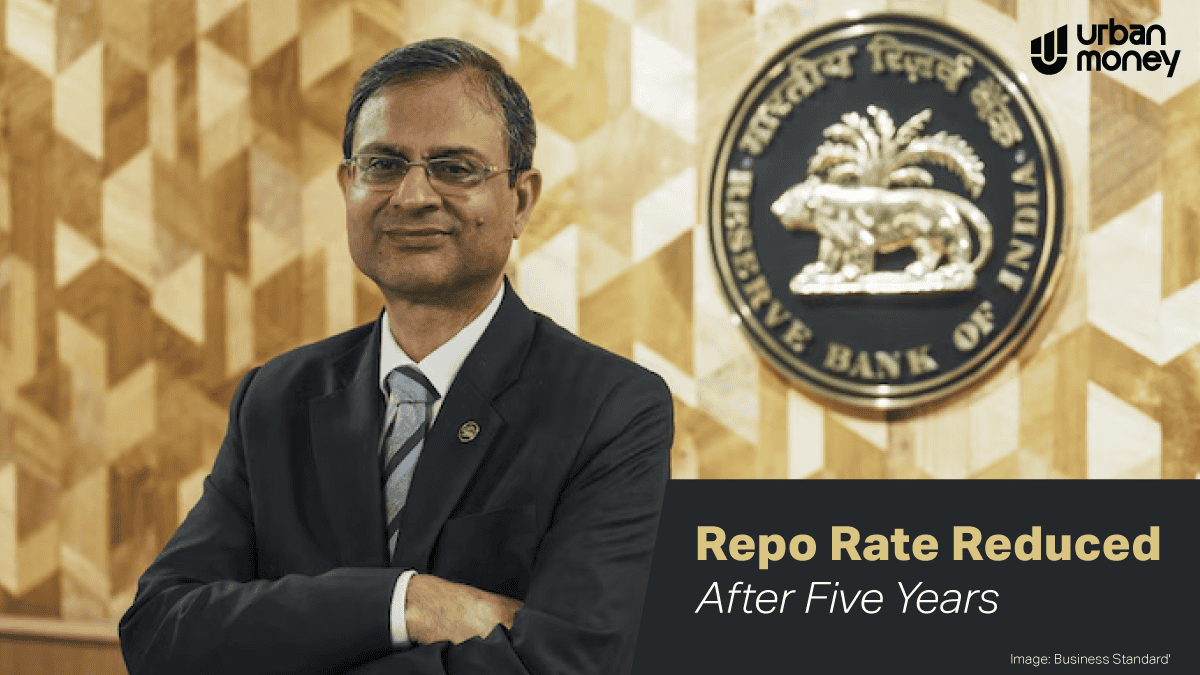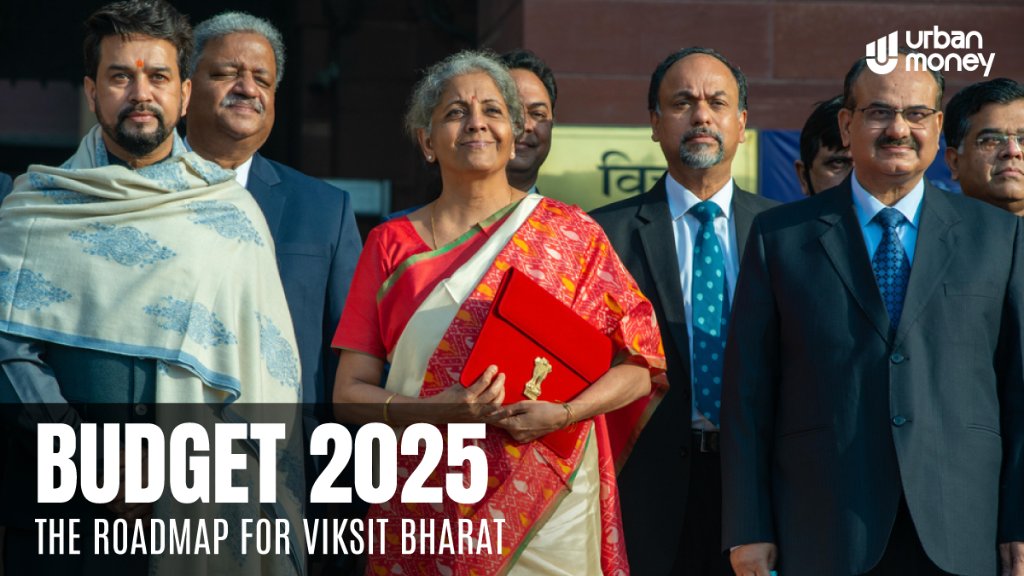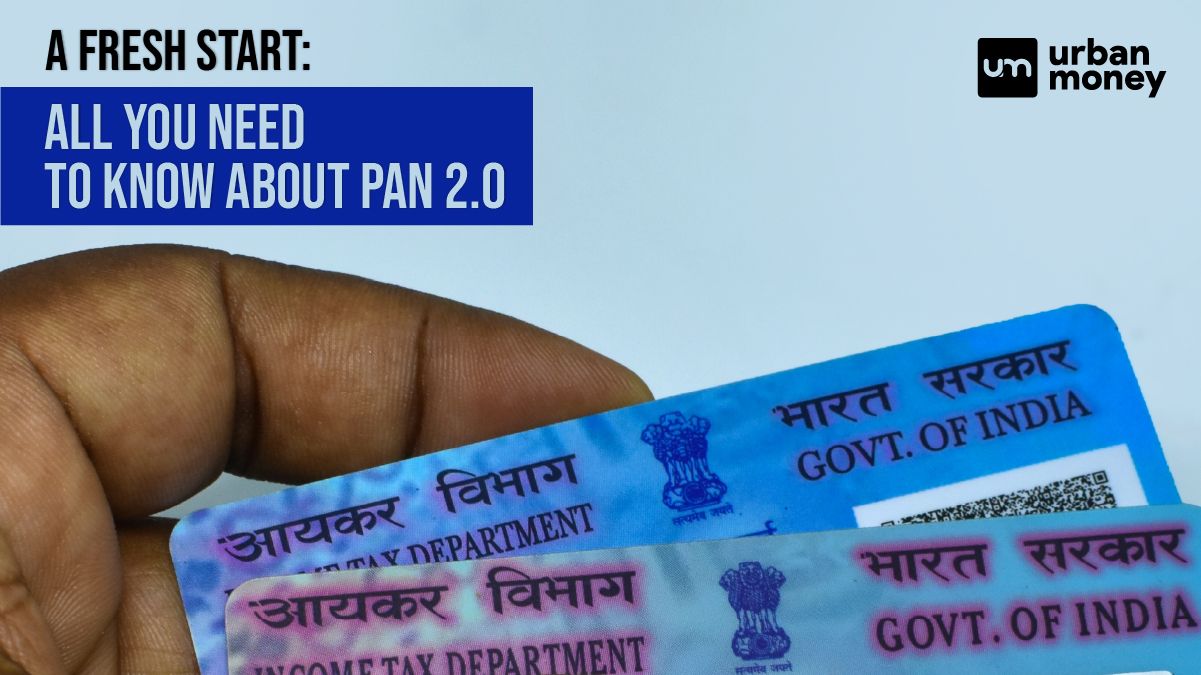Top 10 Best Private Banks in India List 2025
January 09, 2025
Financial News | Expectations from Union Budget 2023-24

January 24, 2023


Every year at this time, we look forward to the Honourable Finance Minister rising to present the Union Budget. The current finance minister is undoubtedly making a difference, even if most finance ministers leave their mark. As a result, we, as Indian citizens, are continually raising the bar high for her budget.
Union Budget 2023: The Union Budget is one of the year’s main events as it might be the last budget by the Modi-led BJP government. Along with outlining the government’s financial activities, the budget is produced to outline the economy’s plan for the upcoming fiscal year.
The Union Budget significantly impacts every resident in the nation, making it the most awaited event of the first quarter. The Union Budget is presented on February 1 and implemented yearly by the Finance Minister and other Ministers.
Read about the Union Budget 2023’s date, time, expectations and presenter.
Table of Contents
TogglePeople have set their eyes on how the central government manages fiscal imbalance and inflation. The budget deficit is likely to surge in case the government spends more than anticipated figures on capital as well as revenue expenditures. Due to such a scenario, higher market borrowing can result in increased pressure on interest rates, causing inflation.
Additionally, we are well-versed in what’s going on across the world. Almost every nation is going through a recession, and the predictions reveal it might hit India soon. Thus, the Union Budget 2023 announcement will also clarify how the government will tackle it: if at all it happens.
The citizens have kept higher Union Budget expectations contrary to the previous year. Here is what people are anticipating from the Union Budget 2023-24.
People have the most expectations from Income Tax Slab, especially the corporate sector. According to reports, the government is mulling to raise the basic tax exemption threshold from INR 2.5 lakhs to INR 5 lakhs. This move would not impact individuals making up to INR 5 lakhs because they currently qualify for a rebate under section 87A. However, it would eliminate the requirement of submitting required tax returns.
Salaried taxpayers in India have higher hopes as they have noticed few beneficial changes in the last several budgets and are anxiously anticipating the upcoming one. The only best announcement they heard in the past decade was in 2020 about an optional new tax regime. It is anticipated that the Indian government will grant specific deductions and exemptions to make the new system more appealing.
According to experts, the government may consider raising the threshold, specifically for the highest tax rate from INR 10 lakh to INR 20 lakh and lowering the highest tax rate from 30% to 25%.
With a constant surge in the RBI Repo Rate in 2022, the banking sector expects a notable increase in capital funding for the upcoming financial year. It will be a major source of finance for the government’s sizable CAPEX. But the industry is more concerned with how the government plans to privatise public sector banks (PSBs). According to experts, privatising PSBs will increase operational effectiveness and encourage considerable financial inclusion across the nation.
Hon. Finance Minister Nirmala Sitharaman announced plans to privatise two public sector banks in the 2022 budget, but nothing has been done on that front. The process requires the Banking Laws (Amendment) Bill, which the designated authorities must submit to the Parliament. Industry sources claim that the government might postpone the privatisation of PSBs because of the 2024 state and federal elections. Although the NITI Aayog has made recommendations to privatise banks, the government still needs to make a final choice. The Finance Minister may present initiatives to advance financial inclusion and raise PSB efficiency.
With numerous classifications, including speculative business revenue, non-speculative income, long-term capital gains and short-term capital gains, the categorisation of income from stock market transactions is exceptionally complicated. Various instruments, such as stocks, bonds, MF units, etc., are categorised under these headings depending on how long they have been held. The adoption of a single tax rate for long-term and short-term assets is something taxpayers expect from the budget led by Nirmala Sitharaman. Additionally, stock market investors are looking forward to simplifications and the alignment of numerous tenures for various asset classes.
The global equities markets have been extremely volatile over the past year. The Indian equities market, however, has stood out as an anomaly, outperforming other developed and emerging markets. While some industry analysts feel that high valuations may constrain the growth of the stock market in 2023, they also anticipate that the Indian budget may maintain its speed. The Long-Term Capital Gains Tax, as per which gains above INR 1 lakh are taxable at 10% if the holding term is more than one year, should be eliminated in order to accomplish this. Investors are urging the repeal of this tax, which would, in the opinion of experts, significantly enhance the markets and stimulate greater involvement.
Currently, there are varying tax rates for various industries. The corporate sector anticipates uniformity in tax rates from the upcoming Union Budget. It will help India stand as an epicentre for manufacturing as well as service industries. Additionally, if the government implements 15% corporation tax rates, it will make India a nation with the most competitive company tax rates. In addition to boosting the manufacturing and industrial sectors, this will open the door for the services sector to notable expansion and outperform itself.
The government is expected to keep prioritising increased access to technology along with education in the upcoming budget, specifically across the rural and neglected areas. It could entail expansion of funding towards the ed-tech firms, tax reliefs to the ed-tech businesses, and starting fresh. This will encourage the inclusion of technology to boost the education sector significantly. To keep up with the shifts in the labour market, the government might focus on skill development and the availability of vocational training. The government has actively developed the National Education Policy since 2020, and it might be enacted shortly with the budget announcement. As per the anticipation, this budget may be a perfect chance to reflect the changes recommended in the Policy.
In the fiscal year 2022-23, the home loan interest rates have increased significantly, rooted in a surge in RBI’s Repo Rate. However, there were no changes in the tax deduction structure. Considering the massive hike in property prices within the past few years, the government can increase the tax deduction limit towards home loans. The current limit clocks at INR 2 lakhs which might fall in the range of INR 3 to 4 lakhs after the announcement of the Union Budget 2023.
For the more than fifty million workers in India’s unorganised sector, it is highly essential to focus more on improving the Labor Relations Law through the Union Budget. Four new labour and industrial relations laws will replace India’s 29 out-of-date labour laws. Of India’s 50 million workers, more than 90% of labour belongs to unorganised industries.
These include the laws governing the minimum wage, social security, labour relations, and working conditions. They seek to safeguard the fundamental rights of industrial workers, ensure a fair minimum pay, control health and safety requirements, and gradually enhance labour relations.
As the world’s third-largest renewable energy producer, Indian citizens have higher expectations for this sector. Despite massive government support, India has yet to see the required growth in solar installations.
Innovative tax breaks are being tested in several nations to promote solar energy investment globally. The government must offer tax incentives and subsidies to businesses that instal solar panels and citizens who instal solar panels on rooftops. It will give a significant push in achieving the 2030 Solar Mission objectives.
A flat 30% tax rate applies to partnership firms and LLPs in the current scenario. The government offered an alternative tax regime for domestic businesses, individuals, and Hindu undivided families. As of now, partnership firms and LLPs are anticipating enacting tax breaks.
The expectation of Common People from Union Budget 2023-24
During the Covid epidemic, India’s middle, as well as lower classes were severely afflicted. These social strata anticipate receiving tax relief from the upcoming budget announcement.
Lowering the 30% tax rate to about 25% is appropriate. The top tax rate threshold should be increased from Rs. 10,000 to 20,000. Additionally, there should be a reconsideration of increasing Section 80C restrictions.
More tax exemptions should be available to citizens who invest extensively in health insurance. Better financial management, including stock and mutual fund investing, should be rewarded with greater tax breaks.
According to Section 36(1)(iv), employer contributions towards the National Pension System are tax deductible as long as they don’t exceed 10% of an employee’s wage. Section 36 should be updated to reflect the change in the central government’s contribution to NPS from 10% to 14%. It will ensure consistency between the two NPS sections.
The below-depicted table highlights a few details associated with the upcoming Union Budget 2023.
| Details | Description |
| Date of Presenting Union Budget 2023 | 1st February 2023 |
| Presenter | Finance Minister: Nirmala Sitharaman |
| Union budget 2023-24 expected time | From 11.00 AM (will be streamed live through media channels) |
| Location | The Parliament House, New Delhi |
In conclusion, we anticipate that the government will make some courageous decisions in this Budget, which would be consistent with some very bold decisions it has made in the past, such as during Covid or a particularly challenging problem like privatisation.
We are highly optimistic that there will be something to write about on February 1, given that this is the final full Budget by BJP before the general election.
The Union Budget 2023-24 will be presented on February 1, 2023, from 11 am onwards by the Honorable Finance Minister Nirmala Sitharaman.
We anticipate it to be growth-oriented, given it is the final full-year budget by the BJP government before the 2024 Union Election. The Budget's main priorities are job growth and investment-driven growth. The real estate industry may also witness significant growth with certain announcements to increase the current income tax regime for homes.








© 2025 www.urbanmoney.com. All rights reserved.

Need Loan Assistance?

Thank you for showing your interest. Our agent will get in touch with you soon.

















